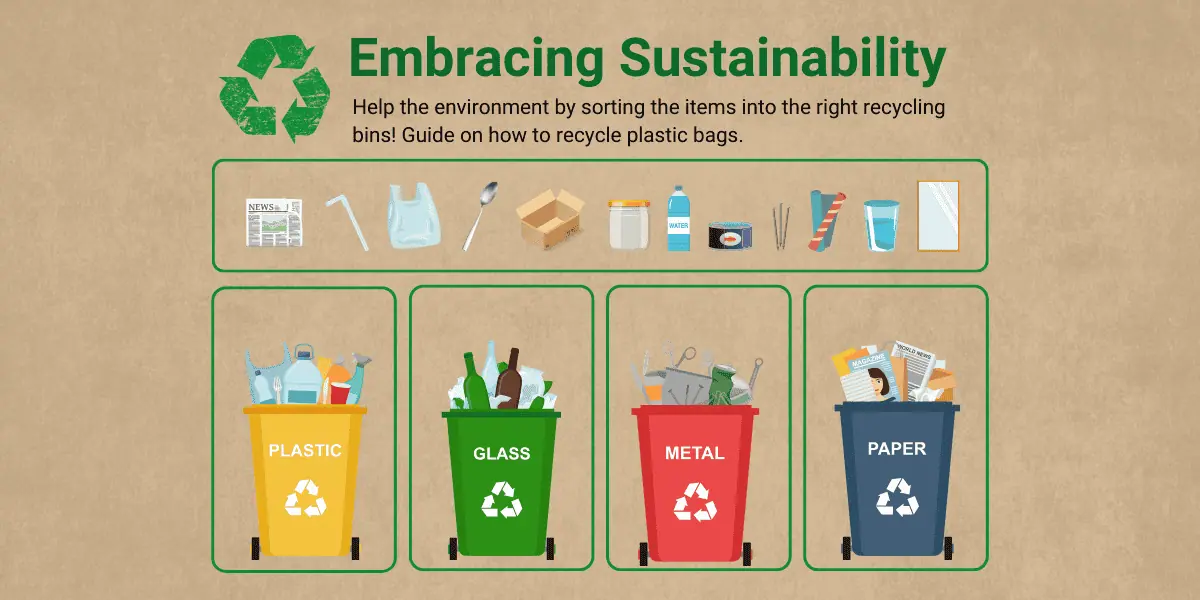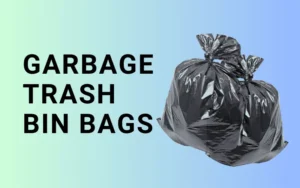
In today’s world, where environmental concerns continue to grow, recycle plastic bags has become an essential practice. One item that often contributes significantly to waste and pollution is the small plastic bags. It is crucial for us to understand the impact of small plastic bags on the environment and learn how to recycle them responsibly.
In this blog post, we will explore the importance of recycling plastic bags and provide you with practical steps to embrace sustainability and reduce waste.
Understand the Environmental Impact
Plastic bags, when not disposed of properly, can have devastating consequences for the environment. They take hundreds of years to decompose, releasing harmful toxins into the soil and water. Plastic bag pollution poses a threat to wildlife, particularly marine animals who mistake them for food or become entangled in them. By recycling small plastic bags, we can significantly reduce these harmful effects.
Check Local Recycling Programs
Start by researching local recycling programs in your area. Many communities have designated drop-off locations or curbside pickup for plastic bag recycling. Check with your municipality, recycling centers, or supermarkets to find out where you can recycle plastic bags. They may accept them separately or as part of a wider plastic film recycling program.
Bag It Separately
When planning a trip to the recycling center, remember to collect and store your plastic bags separately to prevent contamination. Make sure to empty and clean them thoroughly to remove any lingering debris or food residue.
Check for the Recyclable Label
Before recycling, look for the recyclable symbol on the plastic bag. Most plastic bags with the number 2 or 4 inside a triangle are recyclable. Some bags may also have a “Plastic Film Recycling” label. Focus on recycling bags made of low-density polyethylene (LDPE) or high-density polyethylene (HDPE) plastic for optimal results.
Reuse and Re-purpose
An alternative to recycle plastic bags is to find creative ways to re-purpose plastic bags. Reuse them for other purposes such as storage, packing material, or even crafting. Some organizations also accept clean and reusable plastic bags for donation, like food banks or charitable organizations.
Educate Others
Spread awareness about the importance of recycling plastic bags within your community. Encourage others to recycle and provide them with information on how to do it effectively. Awareness and education are key to building a sustainable future.
Where to Recycle Plastic Bags
Where to take plastic bags for recycling near me? There are several options to recycle plastic bags. One convenient option is to check with your local recycling programs to see if they accept plastic bags and if they have designated drop-off locations or curbside pickup.
Another option is to locate plastic bag collection bins in retail stores. Many retailers such as Target, Walmart, Safeway and Kroger offer bag recycling collections in their stores, with the bins usually located near the front entrance.
Non-profit organizations such as food banks or charitable organizations may also accept clean and reusable plastic bags for donation.
Are plastic bags recyclable? It is important to note that not all plastic bags are recyclable. Look for the recyclable symbol on the plastic bag, with bags made of low-density polyethylene (LDPE) or high-density polyethylene (HDPE) being the most commonly accepted types for recycling purposes
Conclusion
Recycling plastic bags is a small yet significant step we can take towards reducing waste and preserving our environment.
By understanding the impact of plastic bag pollution and following our guide on how recycle plastic bags, we can make a positive difference. Let’s embrace sustainability, one plastic bag at a time, and create a cleaner and greener world for future generations. Ideal Packaging and Supplies is Mississauga-based manufacturer and distributor of all types of plastic bags in Canada. Contact us today to learn more about our products and services!




